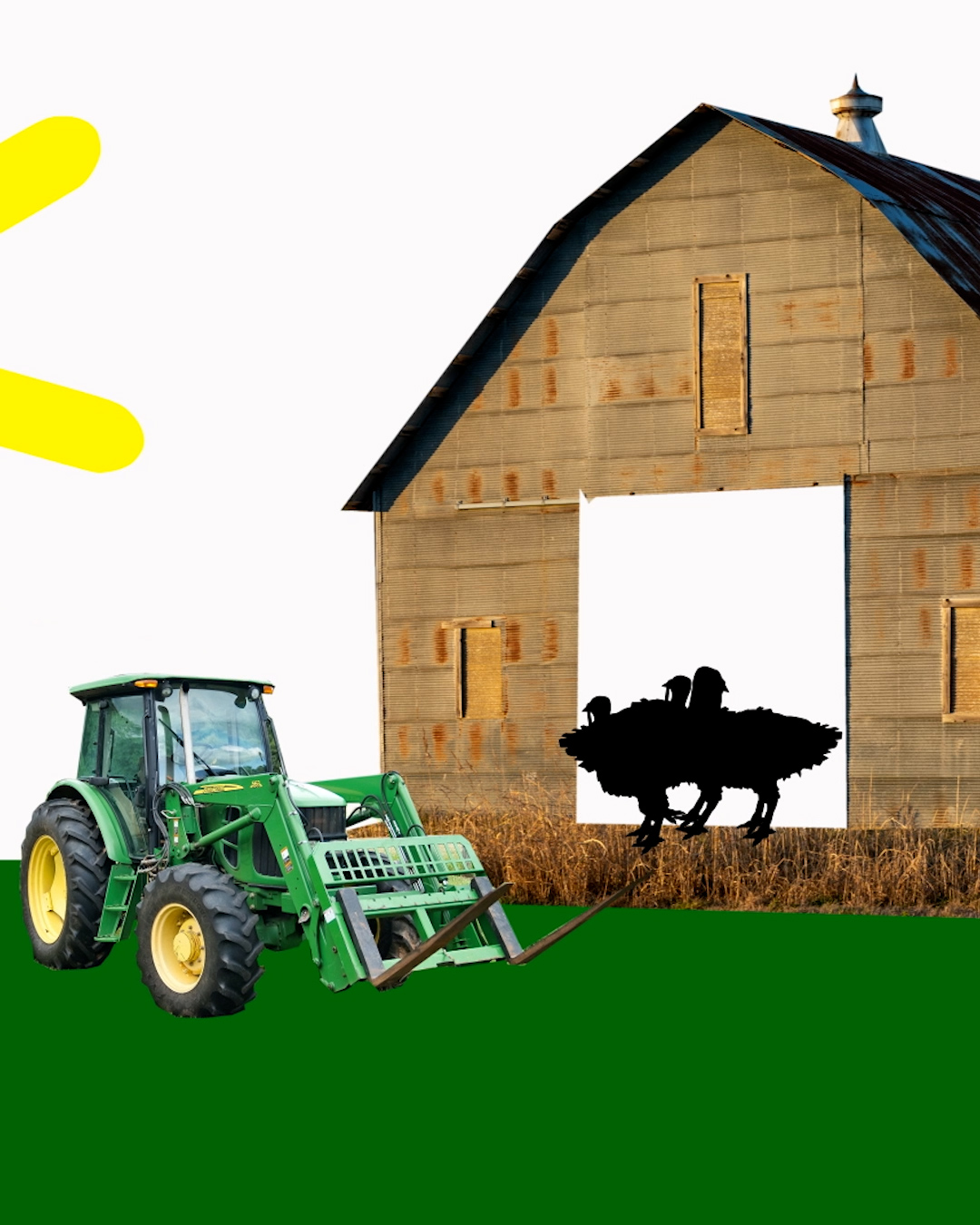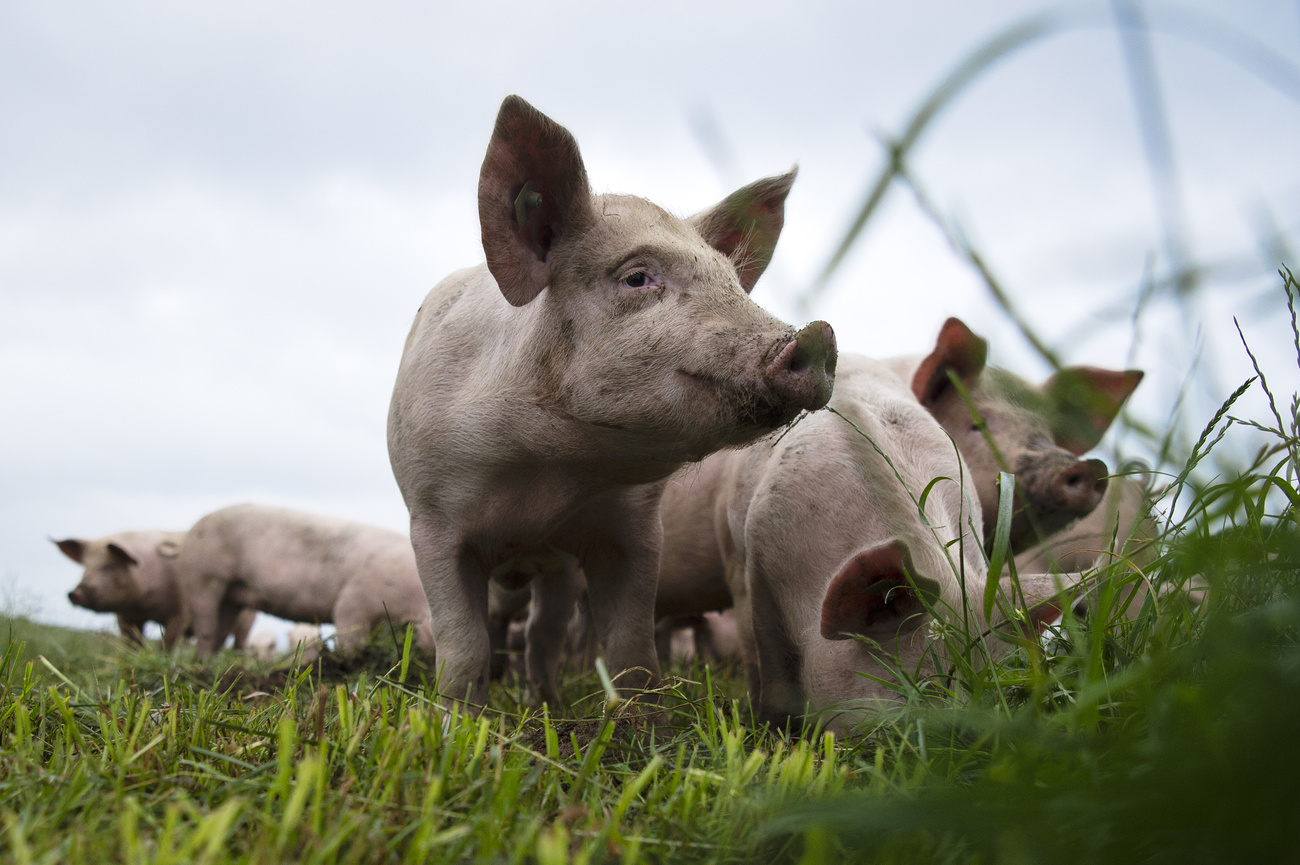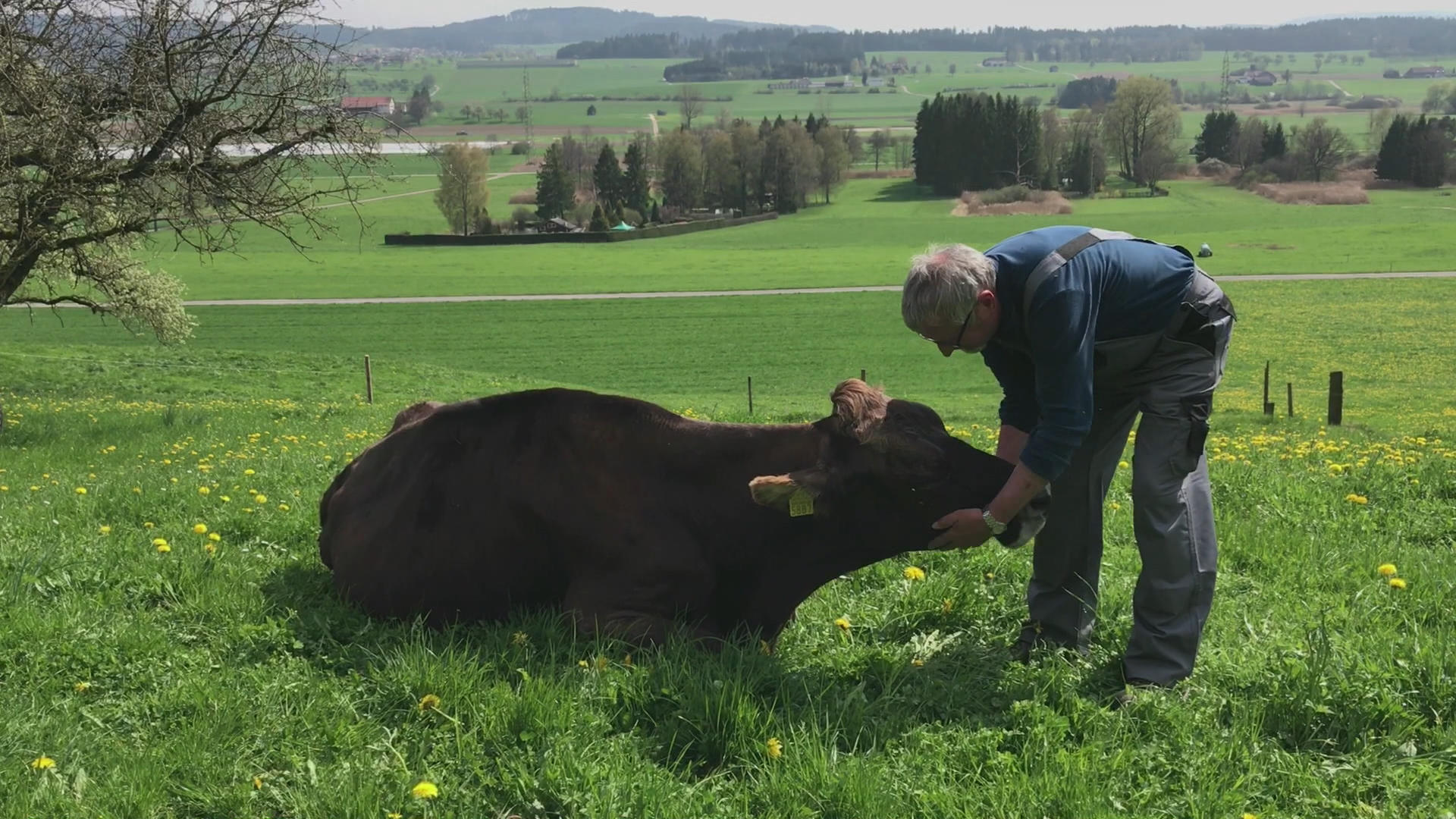Meret Schneider: ‘We must reduce our meat consumption’

On September 25, Swiss citizens will vote on a ban on intensive livestock farming. The initiative aims to eradicate factory farming and calls for stricter import regulations for animal products.
“We should have fewer animals but keep them in a more dignified way,” says Zurich’s Green Party parliamentarian Meret Schneider. She is a leading advocate for veganism and is also the co-manager of Sentience Politics, the animal rights organisation that launched the initiative. In an interview with swissinfo.ch, she explains why she supports the cause.

More
Animal welfare: people’s initiative takes aim at factory farming
SWI swissinfo.ch: Switzerland has some of the strictest animal protection laws and animal husbandry is comparatively small. Do we need more regulations?
Meret Schneider: Of course, Switzerland is well positioned when it comes to animal protection legislation, and we have fewer animals than other countries. However, farmers are still allowed to keep 27,000 broiler chickens in one single barn with 14 chickens packed per square metre. That’s certainly overcrowding.
There is no point in wondering if the situation is worse elsewhere or what other countries are doing. We should rather ask ourselves whether the way we manage our animals ensures their welfare. Do we protect their dignity? There is certainly a lot of room for improvement.
SWI: Does this mean that animals are not sufficiently protected in Switzerland?
M.S.: I’ll leave it to the readers to decide. In Switzerland, a conventional broiler chicken is allowed to live for 30 days during which it is fattened to such an extent that it is unable to stand up on its own two feet. The chickens are then slaughtered on a piecework basis. Laying hens are gassed after ten months because they lose their productivity even though they can live to be 14 years old. They often suffer from breastbone fractures which is due to their selective breeding for increased egg laying. Pigs live on one square metre of concrete without bedding which gives them joint pain. In my view we are far from protecting animal welfare.
SWI: Opponents argue that if accepted, the initiative could lead to a massive fall in Swiss animal products and a price rise of 20% to 40%. Wouldn’t that be a problem for you?
M.S.: This number is far too high because it was calculated based on prices for organic products. It doesn’t make sense. The initiative will not oblige farmers to meet the envisaged organic standards but use them as guidelines of how to protect animal welfare. There will be fewer animal products on the marker which is in line with consumers’ dietary habits. Meat consumption has been continuously on the decline for a while.
We must severely reduce the consumption of animal products anyway due to climate change and resource depletion. Of course, prices will increase but not as much as the initiative’s opponents claim. At the end of the day, a price hike would be appropriate. Animal products are luxury items that require a great deal of resources. And as long as the Swiss throw away a third of the food they buy, it is hard to understand why anything would be too expensive.

More
Swiss factory farming ban to be decided at the ballot box
SWI: Farmers will certainly face higher costs if they, let’s say, are required to convert their stables. Does the initiative take this into account?
M.S.: Absolutely. According to our proposal, the government will support the farmers. We demand subsidies which is something we emphasise again and again. At the same time, we must not forget that the transition period is 25 years, which is a whole generation. We certainly have enough time.
SWI: Opponents of the initiative claim that farmers would have to adopt the requirements for organic certification. This would curb the consumers’ freedom of choice. Is there any truth in it?
M.S.: As I mentioned before, farmers will not be obliged to adopt organic standards and consumers’ freedom of choice is already limited. For example, keeping hens in battery cages is banned in Switzerland. This was a political decision which was supported by the people. We do not want to keep our hens in a way that is against animal welfare. Animal dignity is enshrined in the Swiss Constitution. The same applies to other animal products.
SWI: Swiss resources are not sufficient to feed the whole population. Wouldn’t the initiative reduce our self-sufficiency rate even further?
M.S.: We are far from being self-sufficient. Swiss farms rely on hybrid laying hens for egg production or broiler chickens for meat. These hybrid animals were not bred in Switzerland and their parent stock were imported. When we talk about self-sufficiency, we must bear in mind that we import parent stock, as well as over one million tonnes of fodder every year.
If we cut back on the number of animals and rely more on grazing animals – such as cattle, cows, sheep and goats – which are adapted to our pastures, we will be more self-sufficient. Switzerland has the right topography for grazing animals.
SWI: Isn’t there a risk that the initiative will boost imports from countries where animal welfare is less respected than in Switzerland?
M.S.: This initiative would prevent exactly that. Imported products would have to meet Swiss standards. It would be a great opportunity for Swiss farmers as the market would not be flooded with cheap products such as poultry from Brazil or beef from Argentina. Animals in these countries are often kept according to standards that would be banned under our initiative.
SWI: Critics claim that if accepted, the initiative would violate Switzerland’s obligations towards the World Trade Organisation (WTO). What do you think about that?
M.S.: That’s not a problem. There are already WTO regulations according to which import restrictions are justified and possible if products contradict public morals of the respective society. We have seen this with the import ban on seal products or eggs from caged hens. Accepting the initiative would send a very strong signal that says: “We don’t want this as a society.” This would even be compliant with the WTO.
Opposing viewpoint: Swiss People’s Party’s parliamentarian Marcel Dettling explains in an interview why he is against the initiative on the ban on intensive livestock farming.

More
Marcel Dettling: ‘The Swiss love their meat’
More
Adapted from German by Billi Bierling

In compliance with the JTI standards
More: SWI swissinfo.ch certified by the Journalism Trust Initiative





You can find an overview of ongoing debates with our journalists here. Please join us!
If you want to start a conversation about a topic raised in this article or want to report factual errors, email us at english@swissinfo.ch.